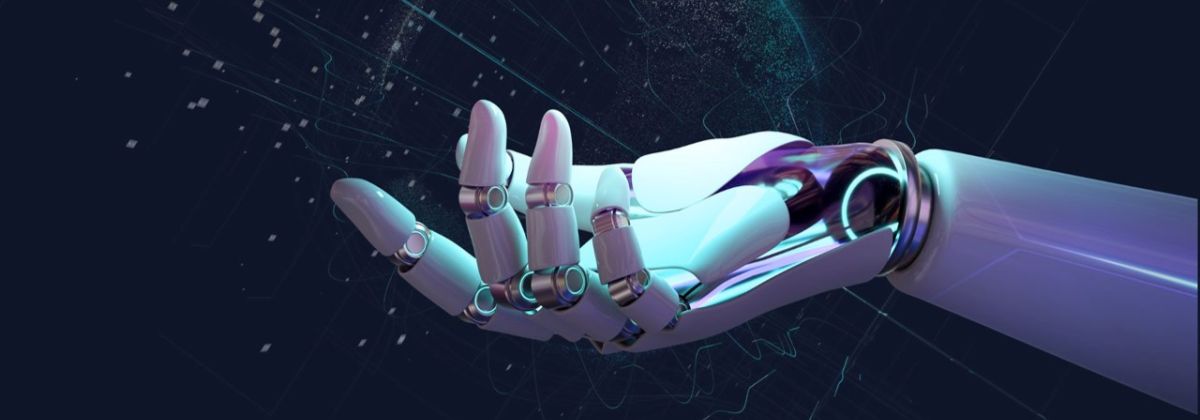
28 Nov 2024
Technology is evolving at lightning speed, and the HR sector has some big ideas. Here’s the latest on everything from AI to wearable technology, and how it could impact the employee experience
WHEN YOU hear the phrase ‘the future of HR’, many different ideas may come to mind. From cutting-edge, AI-powered technology that monitors fatigue and engagement, through to on-demand pay and non-traditional workplaces, one thing is clear – this sector is full of big ideas.
As these concepts evolve, we are seeing a fundamental shift in how HR approaches employee wellbeing, engagement and diversity, with technology as a powerful driver of change. But even as the HR sector transforms, it’s also clear that the human element remains at the heart of its future.
As technology shapes new possibilities for workforce management, HRD explores how it can redefine employee support, wellbeing and inclusion.
The role of technology in supporting employee wellbeing
One of the most immediate trends in HR is the role technology plays in employee welfare, engagement and diversity initiatives. With wearable technology and AI, employers can now monitor employee wellbeing in unprecedented ways, paving the way for proactive measures that enhance both physical and mental health.
Wearable technology is especially effective for employees who may have specific health needs or disabilities, opening the door to a more inclusive workplace. By facilitating remote work or flexible hours, these tools enable people who may not
have been able to participate in the traditional workplace to contribute fully. For instance, tools like Neuralink are already enabling individuals with disabilities to engage in tasks they may not have been able to perform previously. This use of technology in HR can also benefit those recovering from medical procedures or managing chronic health conditions by providing flexible and accessible work arrangements.
However, Nick Southcombe, CEO of Frontier Software, emphasises the need to balance technology’s potential with genuine human care.
“We want to challenge our assumptions and open our minds to potential paths that may lie ahead, whether that’s through technology innovation, shifts in workforce expectations, or new regulatory landscapes,” he says.
Despite these promising trends, organisations still have a way to go before they see the full benefits of adopting new technology. According to a recent report from Boston Consulting Group, nearly three in four companies (74%) have yet to unlock AI’s full value, mainly due to apprehensions around data misuse and the complexities of integrating new systems.
Additionally, a recent poll from Gartner showed that 75% of organisations have implemented significant updates to their leadership development programs, but with limited impact. Gartner noted that to turn this around, change needs to start at the leadership level.
AI versus the human element
Artificial intelligence and automation are set to change not just payroll processes but also workforce management. Although there is some fear that AI could eliminate jobs, there is also a lot of excitement around its potential to augment human roles, enabling employees to focus on more strategic, creative and complex tasks.
AI offers the potential to personalise and optimise the HR function in ways that were previously unimaginable. For example, companies are beginning to develop private large language models
(LLMs) that are customised for specific roles and tasks. These AI-driven models can handle routine administrative tasks, freeing up HR professionals to focus on more impactful work, such as employee engagement and strategic planning. Additionally, AI-driven analytics enable HR to gain deep insights into workforce trends, helping to improve recruitment, training and retention strategies.
This rapid technological progress initiates an important conversation about what skills will be most valued in the future. Human qualities like emotional intelligence, creativity and adaptability will continue to play a crucial role, even as technical skills become more important. As companies navigate this transition, they must consider what attributes they want to prioritise, and invest in employee development to meet these new demands.
There is also the question of whether AI might disrupt the nature of interpersonal skills and other traditionally ‘human’ skills. As AI becomes more prevalent in workplaces, organisations will need to re-evaluate their understanding of these skills, perhaps placing a new emphasis on how employees can collaborate with AI to achieve the best results. For example, if AI is handling data analysis or routine administrative work, HR professionals might focus more on empathetic leadership and creative problem-solving, bringing a human touch to the workplace that technology cannot replicate.
“The advancements in data visualisation and AI give the opportunities for employers to unlock real insights around the workforce,” Southcombe says.
“The challenge is to ensure that we are using these tools to support, not replace, the human connections that are critical in our workplaces.”
This shift is further highlighted by research indicating that half of Gen Z workers would consider resigning if they were not given training in generative AI. Employers must invest in developing both technical and interpersonal skills to stay competitive and relevant in the coming years.
“We want to challenge our assumptions and open our minds to potential paths that may lie ahead, whether that’s through technology innovation, shifts in workforce expectations, or new regulatory landscapes”
The future of HR
The potential for AI and other technologies to revolutionise HR and payroll is undoubtedly exciting. However, at the end of the day, people remain at the centre of the industry.
The goal is not simply to automate for the sake of efficiency but to create a more supportive, responsive and human-centred workplace. As the sector moves forward, HR professionals must balance the opportunities technology brings with a commitment to enhancing the human experience.
Ultimately, the future of HR is about much more than just the latest tools and technologies. It’s about using these advancements to create a work environment that supports diversity, prioritises employee wellbeing and embraces the unique contributions that each individual brings to the table. The future of HR is high-tech, but it’s also deeply human.
Article originally published on HRD December 2024

